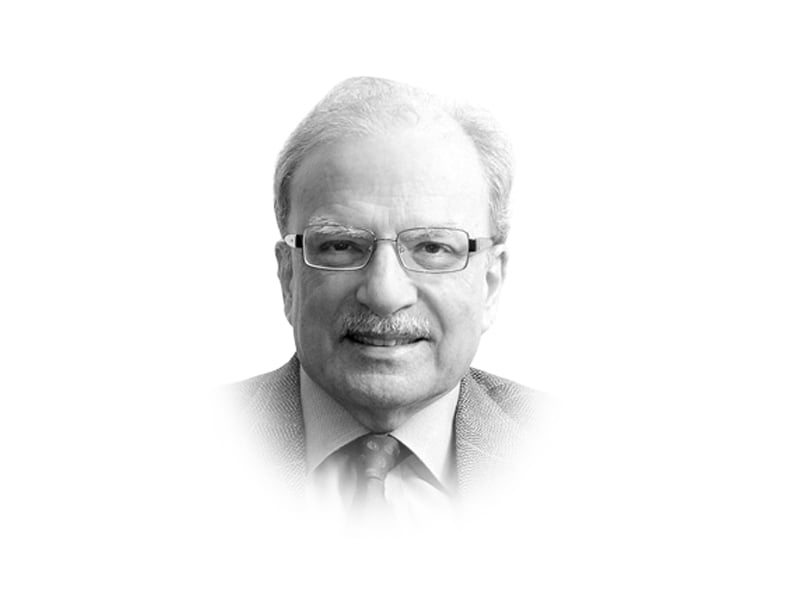
It won’t help the Muslim community in the United States or the faith they follow that the couple that carried out the mass killings in San Bernardino, California was Muslim. One of them was reported to have links with Pakistan. At the time of writing, their motive for the murder in cold blood on the afternoon of December 2 remained unclear. The man worked in a health related facility. They had been married for two years and left their six-month-old child, a girl, with the man’s mother before they went on the killing rampage. The police discovered what it called a virtual bomb factory in their house.
This incident occurred while the Muslims in America were trying hard to come to terms with the anti-Muslim and anti-Islam rhetoric of several candidates for the Republican ticket in the presidential elections of November 2016. Up until this killing of so many innocents, the Muslim community could claim that it was being singled out for abuse and was being defamed by a bunch of bigoted politicians. That claim becomes harder after San Bernardino.
What is the size of the Muslim community in the United States? That question is hard to answer. The community claims that there are some six millions Muslim citizens in America. Some in the Jewish community, which by conventional measures is the second-largest religious group in the United States, has not accepted that claim. It puts the number of Muslims at two to three million or two to three per cent of the population. Several years ago this debate led to what came to be known as the “mosque study”. Several researchers developed a model that linked attendance at mosques to the number in the community. Using the attendance data, they arrived at the figure of six million. Given the strict separation of religion from the working of the state in the country’s Constitution, the decennial censuses don’t use religion as one of the elements in the count.
According to some estimates, the state of Illinois with 2.8 per cent of the population, has the largest Muslim minority. It is followed by Virginia with 2.7 per cent, New York with two per cent, New Jersey with 1.8 per cent and Texas with 1.7 per cent. South Asian Muslims form the largest proportion of the American Muslim population with 34 per cent of the total. Arabs come next with 26 per cent followed by African-Americans with 25 per cent. Muslims live mostly in large cities.
While the anti- Muslim sentiment in the United States will undoubtedly increase following San Bernardino, it has not been as pronounced as in several European countries. This has much to do with the class and the backgrounds of the Muslims who have settled in the country. A large majority of Muslims in Europe are from North Africa — from Algeria, Morocco and Tunisia, the countries that were colonised by the French — who came in as workers with little education and skills. Consequently, their descendants are among the continent’s poorest inhabitants. The Muslim community in North America, on the other hand, is made up of well-trained and educated professionals. The household income of South Asian Muslims is higher than that of the United States average. Slowly, South Asian Muslims have begun to create a presence in the American political world.
That may change. One good example of how the American political world is being converted to an anti-Islam sentiment is provided by the path travelled by Chris Christie, the governor of New Jersey. The state has a large Muslim population once courted by the governor. For several years, he hosted iftar parties at his mansion during the month of Ramazan. But that changed as candidates for the Republican ticket in the 2016 presidential election, such as Donald Trump and Ben Carson, gained traction. Community leaders say that Christie missed the opportunity to speak out in the thunderous tones they have come to expect, about what they see as flagrantly hateful remarks from other Republicans. The Muslim community would have also liked the governor not to oppose the arrival of refugees from Syria into the United States. Christie defended his tough language on the refugee situation as a matter of plain speaking. His objection to admitting them was not because of their faith but for reasons of security.
Trump has called for intensive monitoring of Muslim-Americans and has repeated a widely debunked myth that throngs of Muslims in Jersey City, a large urban area in the state, celebrated on September 11, 2001 as two hijacked planes hit and brought down the iconic World Trade Centre Towers. As a report in The New York Times puts it: “To some Muslims in the state, who viewed Mr Christie as an energetic and unexpected champion, his cautious response to the emboldened hard right have come as a disorienting letdown.”
First Paris in Europe and now San Bernardino in California have set back the Muslim communities’ attempts to create political and economic space for themselves. To prevent them from achieving that objective is the professed aim of militant and radical groups such as the Islamic State. Their survival and appeal depends on the materialisation of the clash of civilisations once predicted by the American political scientist Samuel P Huntington.
Published in The Express Tribune, December 7th, 2015.
Like Opinion & Editorial on Facebook, follow @ETOpEd on Twitter to receive all updates on all our daily pieces.

























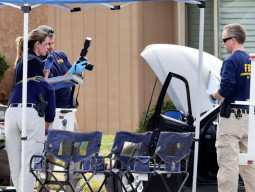
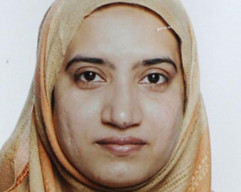
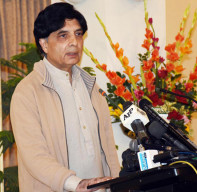
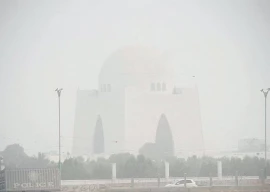

























COMMENTS (13)
Comments are moderated and generally will be posted if they are on-topic and not abusive.
For more information, please see our Comments FAQ